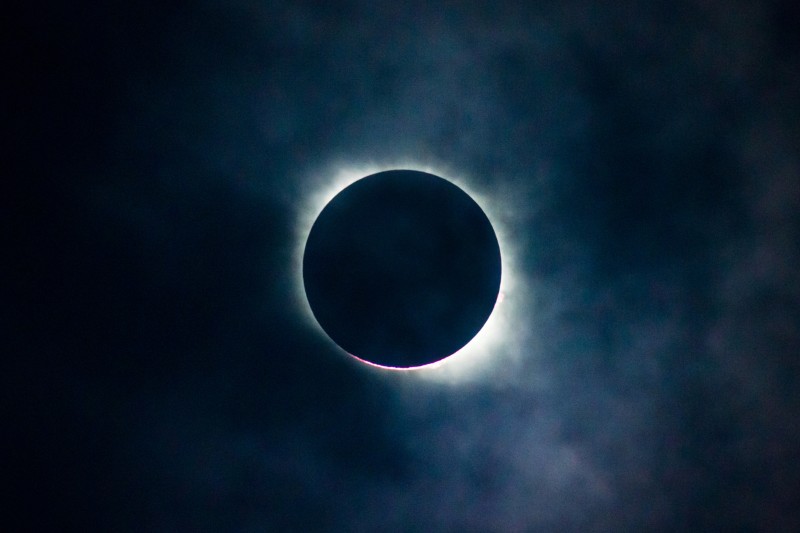11 Dec 2024

Tired Earth
By The Editorial Board

Credit: Jonathan Mehring/ Getty Images/ National Geographic RF
Researchers at Banaras Hindu University in Varanasi, India, have found that an annular solar eclipse on 21 June 2020 caused a substantial decrease in solar irradiance reaching Earth1.
At its peak, the eclipse cut Earth’s surface ozone levels to a minimum. The eclipse also cooled Earth’s atmosphere, changing temperature, relative humidity and wind speed. These changes were most marked during the peak of the eclipse.
The researchers say their results will be useful for planning more integrated and focused experiments during future solar eclipses.
An annular solar eclipse occurs when the Moon covers the Sun's centre, leaving the Sun's outer edges visible as a ‘ring of fire’. The 2020 eclipse started in Africa, crossed over the Arabian Peninsula and then passed over Asian countries, including India. The scientists, led by Abhay Kumar Singh, focused on eight Indian observation stations – Amritsar, Chandigarh, Delhi, Jalandhar, Jaipur, Sirsa, Kurukshetra and Varanasi – where the eclipse magnitude ranged from 77% to 98%.
At all the stations there was a decrease in ozone levels ranging from 30% to 65%, and the temperature also fell and continued to fall for 15 minutes after the maximum phase of the eclipse.
At its peak, the eclipse reduced the sunlight reaching Earth, cooling its atmosphere. This led to an increase in relative humidity at all the stations.
These results will help scientists better understand the effects of an eclipse on Earth’s environment, the researchers say.
Source : nature.com
Comment